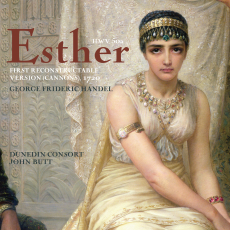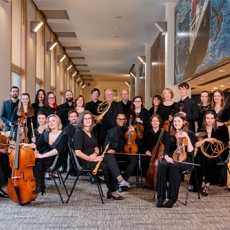Esther - Dunedin Consort - The Times
Fed up with the depressing weather? Access hot sunshine with this bouncy account by the Edinburgh-based Dunedin Consort of Handel's Esther, generally presumed to be the first English oratorio. The CD advises purchasers that the version performed is the "first reconstructable version (Cannons), 1720". Indeed it is, though I'd better not go into scholarly detail lest we both fall asleep.
What matters most is not the niceties of the edition used (derived from Handel's original conception of a compact stages entertainment), but the performers' freshness and dash.
After their past accounts of Handel and Bach we've come to expect youthful verve from John Butt's ensemble. But the singers' virile word-painting still grabs the lapels in this striking work, inspired by the legend of the Jewish queen who saves her Persian community from annihilation (as enshrined in the biblical Book of Esther).
As the revised version's premiere in 1732, foreign singers so mangles words that the Persian king's line "I come, my Queen, to chase delights" hit the eats as "I comb my queen to chase the lice". Nothing like that happens with James Gilchrist's king (so powerfully smitten with the Jewess's charms), Susan Hamilton's Esther (so ringingly pure), Robin Blaze's heartfelt priest or Matthew Brook's villainous Haman, consonants dipped in venom as her determines to remove all Israelites from the land. Inevitable we think of the Holocaust; the libretto's not always easy listening.
Much of Handel's music was appropriated from his Brockes Passion, though it fits its new surroundings very well. Along the way, Butt's lean ensemble (19 players) shower us with instrumental delights, building in colour and diversity with delicious harp traceries, the comfortable ballast of two bassoons, and finally a triumphant trumpet when everything turns out happily for everyone, Haman excepted.
Handel's musical resources generally open out as the piece proceeds, with the chorus's role increasing in importance. Once again, Butt's forces are small: eleven soloists, each singing as if every work matters. That's more than enough to keep us on the edge of our seats.


